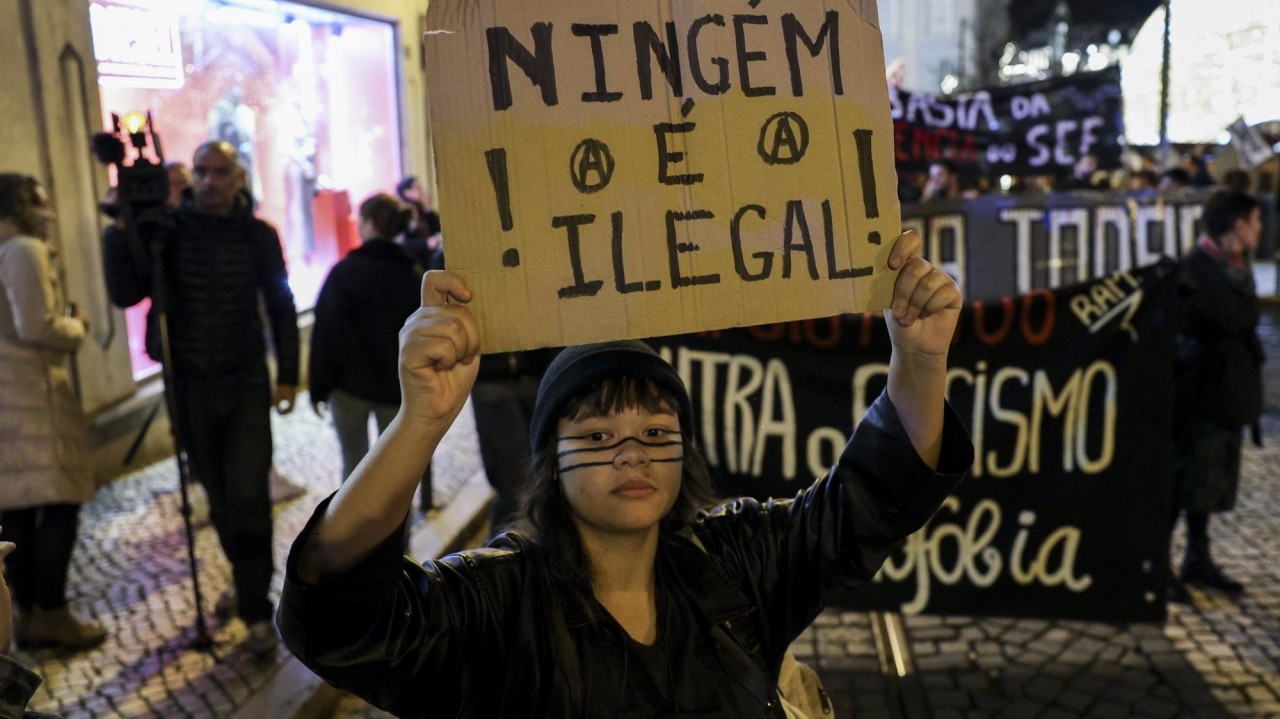Imagine if there were a general strike of all immigrants living in Portugal? The country would come to a standstill. Imagine if everyone with some immigrant ancestry left the country? Would there still be a Lusitanian nation? When you think about it, it is very contradictory to have marches against immigration in a country that was and still is built by immigrants. Both those from there who migrate here and those from here who migrate there. Portugal has always been borderless. It was like that when it launched its caravels overseas. It is still in the Lusitanian DNA to be of the world, so why can't the Lusitanian territory also be of the world?
Recently, the Foreigners and Borders Unit (UEF) was created, announced by the PSD government, whose function is to control borders, monitor the national territory in relation to immigrants and manage the control of the return of immigrants.

In short, it is the creation of a new institutional body solely to deal with the issue of immigration within the national territory from a police power, placing immigrants under surveillance. The PSP can, therefore, monitor in a deliberate and arbitrary manner, according to the Casa do Brasil in Lisbon, which “dangerously reinforces a false association between immigration and public security”, as the institution says in its manifesto published on Instagram.
The idea that immigration is a factor directly proportional to the growth of crime in large urban centers is yet another fallacious discourse launched by the right and extreme right in the informational war (which would be more like disinformational) of contemporary politics.
However, no connection has been proven. It is all just another myth, as concluded in the report, based on an analysis carried out by sociologist Catarina Reis Oliveira, who cross-referenced crime data recorded by the Directorate-General for Justice Policy with immigration figures, pointed out that: “in municipalities with a greater absolute number of foreigners, crime has fallen”.
Click here to read all of Flávia Lopes' texts
Another rumor also takes over the xenophobic common sense discourse: that immigrants come to Portugal to live off subsidies. The truth, however, is the complete opposite, “immigrants do not live off subsidies, on the contrary, they contribute more than they benefit”, as the CNN Portugal report says. Do they commit crimes? Do they live off subsidies? Do they earn well? 8 myths about immigrants in Portugal – CNN Portugal (iol.pt) .
Brazilians stand out in this regard, presenting themselves as the immigrant nationality that contributes the most to Social Security. According to data from the Ministry of Labor, for every 100 euros collected by immigrant workers, 35.9 euros are from the salaries of Brazilian citizens. Together, Brazilians contribute more than 1 billion euros to Portugal's Social Security ( Brazilians contribute more than 1 billion euros to Portugal's Social Security | Brazil | PÚBLICO (publico.pt)
The arguments that immigrants only migrate to take advantage of social benefits and increase crime in Portugal thus fall flat. But if this is the case, why does hate speech persist? Why was police power implemented to monitor immigrants? Why make immigration more difficult by eliminating the expression of interest?
It must be said that the problem is not immigration itself, but rather the basic public policies that cause bottlenecks in this immigration phenomenon. The illegality of immigrants is much more a consequence of the delay in the processes. I guarantee that no one likes to be illegal and insecure to the point of being sent away at any moment.
The issue goes even further. The state of vigilance has its chosen ones and immigrants from the Schengen area (i.e. Europe) are “absolved” of this intentional crime of immigration, during PSP inspections. That alone says a lot.
There are no conclusive answers to any of the questions I asked. But here's a hypothesis: with the new political changes and new laws, it seems that it is now a crime to be an immigrant.
- Log in to post comments